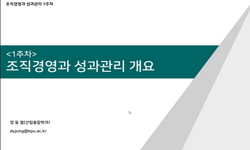본 연구의 목적은 바이오헬스 기업의 비즈니스모델 유형들을 제시하고, 이들이 기업성과에 미치는 영향을 규명하는 것이다. 아울러 본 연구는 조절변수로 2개 기업능력 – IT능력, 기술 라이...
http://chineseinput.net/에서 pinyin(병음)방식으로 중국어를 변환할 수 있습니다.
변환된 중국어를 복사하여 사용하시면 됩니다.
- 中文 을 입력하시려면 zhongwen을 입력하시고 space를누르시면됩니다.
- 北京 을 입력하시려면 beijing을 입력하시고 space를 누르시면 됩니다.

바이오헬스 기업의 비즈니스모델 유형과 성과에 관한 연구 = A Study on Business Model Types and Performance of Bio-Health Companies
한글로보기https://www.riss.kr/link?id=A109016500
- 저자
- 발행기관
- 학술지명
- 권호사항
-
발행연도
2024
-
작성언어
Korean
- 주제어
-
등재정보
KCI등재
-
자료형태
학술저널
-
수록면
1-21(21쪽)
- 제공처
-
0
상세조회 -
0
다운로드
부가정보
국문 초록 (Abstract)
본 연구결과를 요약하면 다음과 같다. 첫째, 국내 바이오헬스 기업의 비즈니스모델 유형은 다음의 4개 유형들 - (1) 유형 1(좁은 시장범위, 제품개발 초점), (2) 유형 2(넓은 시장범위, 제품개발 초점), (3) 유형 3(좁은 시장범위, 서비스제공 초점), (4) 유형 4(넓은 시장범위, 서비스제공 초점) -로 분류할 수 있었다. 그리고 유형 3을 제외하고, 유형 1, 유형 2, 그리고 유형 4 비즈니스모델이 기업성과에 긍정적 영향을 주는 것으로 나타났다. 둘째, IT능력의 조절효과가 확인되었다. 구체적으로, 시장범위가 넓어 여러 시장에서 다양한 제품과 서비스들을 제공하는 유형 2와 유형4 비즈니스모델은 IT능력이 높을수록 기업성과가 더 높은 것으로 나타났다. 셋째, 기술 라이센싱 및 판매능력도 조절효과를 발휘하는 것으로 나타났다. 구체적으로, 유형 1(좁은 시장범위, 제품개발 초점) 비즈니스모델은 기술 라이센싱 및 판매능력이 높을수록 기업성과가 더 높았다.
본 연구의 목적은 바이오헬스 기업의 비즈니스모델 유형들을 제시하고, 이들이 기업성과에 미치는 영향을 규명하는 것이다. 아울러 본 연구는 조절변수로 2개 기업능력 – IT능력, 기술 라이센싱 및 판매능력 -을 제시하고, 이들 조절변수들이 비즈니스모델 유형들과 기업성과 간의 관계를 어떻게 조절하는지를 살펴보았다. 이를 위해 본 연구는 137개 바이오헬스 기업들을 대상으로 실증분석을 하였다.
본 연구결과를 요약하면 다음과 같다. 첫째, 국내 바이오헬스 기업의 비즈니스모델 유형은 다음의 4개 유형들 - (1) 유형 1(좁은 시장범위, 제품개발 초점), (2) 유형 2(넓은 시장범위, 제품개발 초점), (3) 유형 3(좁은 시장범위, 서비스제공 초점), (4) 유형 4(넓은 시장범위, 서비스제공 초점) -로 분류할 수 있었다. 그리고 유형 3을 제외하고, 유형 1, 유형 2, 그리고 유형 4 비즈니스모델이 기업성과에 긍정적 영향을 주는 것으로 나타났다. 둘째, IT능력의 조절효과가 확인되었다. 구체적으로, 시장범위가 넓어 여러 시장에서 다양한 제품과 서비스들을 제공하는 유형 2와 유형4 비즈니스모델은 IT능력이 높을수록 기업성과가 더 높은 것으로 나타났다. 셋째, 기술 라이센싱 및 판매능력도 조절효과를 발휘하는 것으로 나타났다. 구체적으로, 유형 1(좁은 시장범위, 제품개발 초점) 비즈니스모델은 기술 라이센싱 및 판매능력이 높을수록 기업성과가 더 높았다.
다국어 초록 (Multilingual Abstract)
The summarized findings of this study are as follows. First, the types of business models in the domestic bio-health industry can be classified into the following four types: (1) Type 1 (narrow market scope and product development focus), (2) Type 2 (broad market scope and product development focus), (3) Type 3 (narrow market scope and service provision focus), (4) Type 4 (broad market scope and service provision focus). Except for Type 3, it was found that Type 1, Type 2, and Type 4 business models have a positive impact on corporate performance. Second, the moderating effect of IT capability was confirmed. Specifically, Type 2 and Type 4 business models, which provide various products and services in multiple markets, showed that higher IT capability leads to higher corporate performance. Third, it was also found that technology licensing and sales capability exert a moderating effect. Specifically, Type 1 business model (narrow market scope and product development focus) showed that higher technology licensing and sales capability lead to higher corporate performance.
The purpose of this study is to present types of business models in the bio-health industry and to elucidate their impact on corporate performance. Additionally, this study presents two corporate capabilities - IT capability and technology licensing a...
The purpose of this study is to present types of business models in the bio-health industry and to elucidate their impact on corporate performance. Additionally, this study presents two corporate capabilities - IT capability and technology licensing and sales capability - as moderating variables, and examines how these variables moderate the relationship between business model types and corporate performance. To achieve this, the study conducted empirical analysis on 137 bio-health companies.
The summarized findings of this study are as follows. First, the types of business models in the domestic bio-health industry can be classified into the following four types: (1) Type 1 (narrow market scope and product development focus), (2) Type 2 (broad market scope and product development focus), (3) Type 3 (narrow market scope and service provision focus), (4) Type 4 (broad market scope and service provision focus). Except for Type 3, it was found that Type 1, Type 2, and Type 4 business models have a positive impact on corporate performance. Second, the moderating effect of IT capability was confirmed. Specifically, Type 2 and Type 4 business models, which provide various products and services in multiple markets, showed that higher IT capability leads to higher corporate performance. Third, it was also found that technology licensing and sales capability exert a moderating effect. Specifically, Type 1 business model (narrow market scope and product development focus) showed that higher technology licensing and sales capability lead to higher corporate performance.
동일학술지(권/호) 다른 논문
-
운동발달 평가도구 고찰 기반 현장중심형 유아 및 아동 운동 발달 평가 방법 제안
- 충북대학교 국가미래기술경영연구소
- 조용인
- 2024
- KCI등재
-
Market-model based Accounting Information and Firm Value analysis
- 충북대학교 국가미래기술경영연구소
- 한만용
- 2024
- KCI등재
-
기업혁신지표의 시계열 비교 가능성 검토 - 오슬로매뉴얼 개정 전후 변동을 중심으로 -
- 충북대학교 국가미래기술경영연구소
- 손수아
- 2024
- KCI등재
-
엘리트 선수를 위한 비대면 온라인 훈련관리 시스템 개발
- 충북대학교 국가미래기술경영연구소
- 김광준
- 2024
- KCI등재




 KCI
KCI






